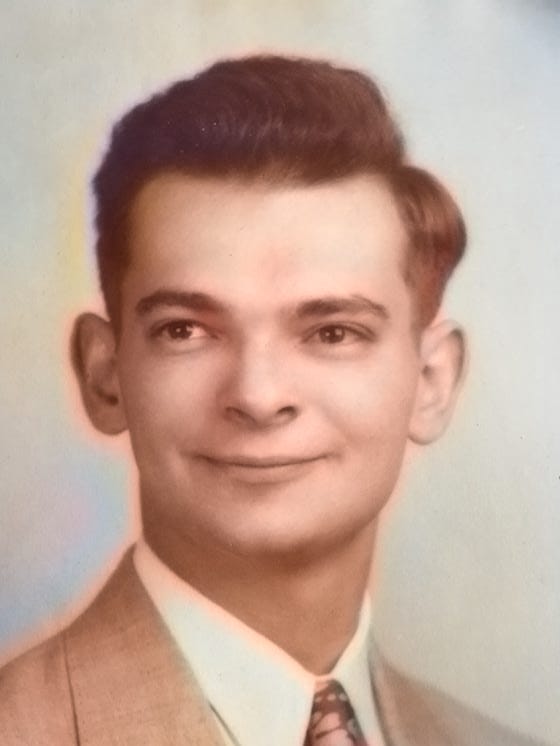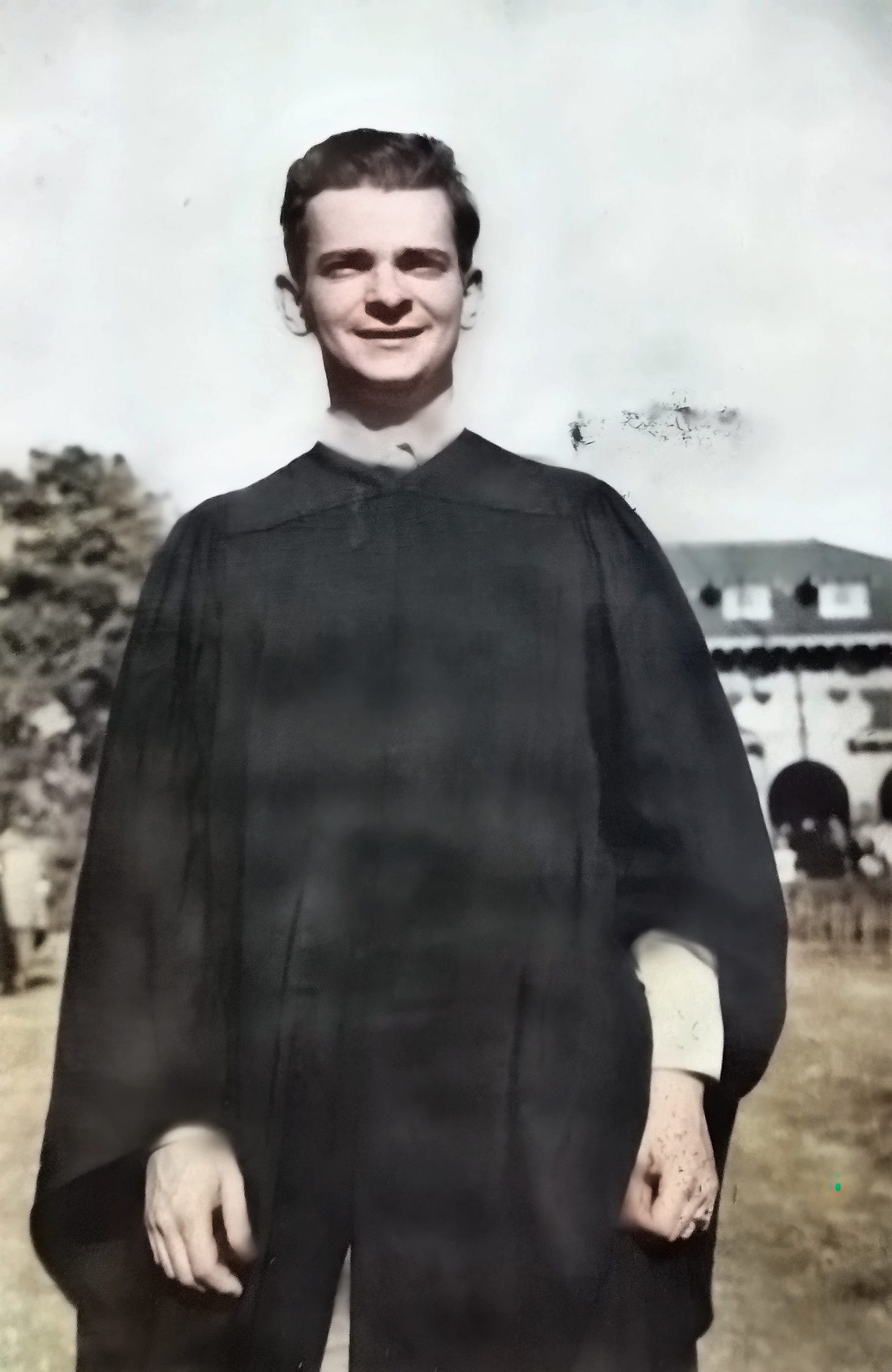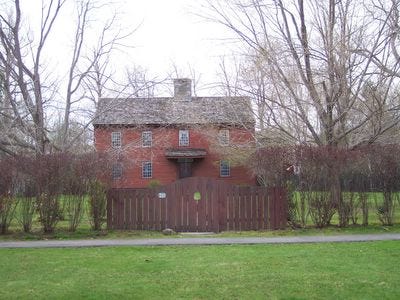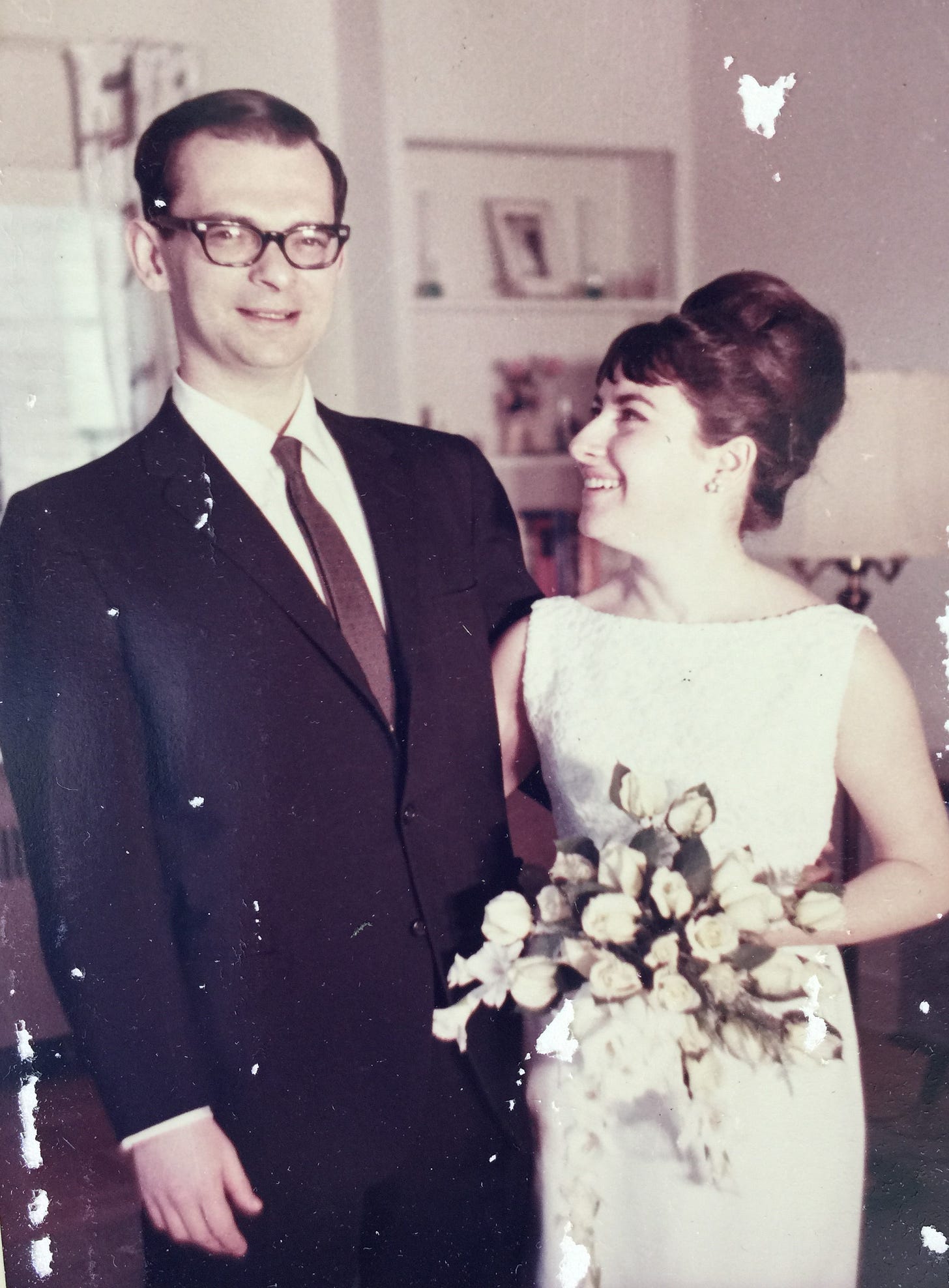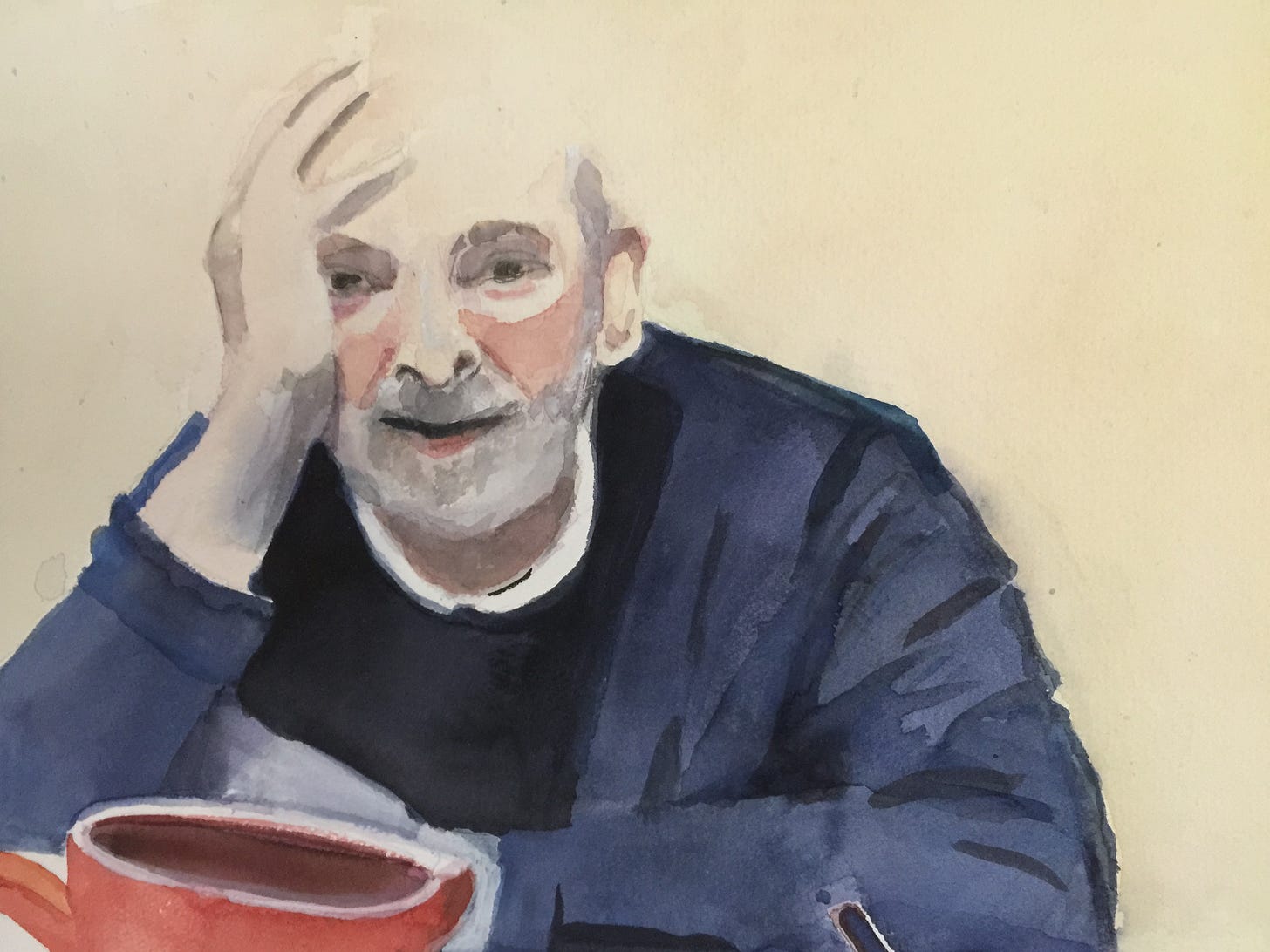Robert Schor's meteoric rise from a lowly clerk to the Acting Assistant Commissioner of Customs in New York came as no surprise to anyone familiar with the trance reading he received from psychic Edgar Cayce
The twenty-minute Edgar Cayce life-reading Robert Schor received at age 14 in Queens, New York, on April 14, 1944, (#4084-1) had a profound impact on his life and, by extension, our understanding of how past lives influence the present. This wasn't, however, what Schor supposed would be the outcome when he first read the transcript of the trance session.
"Nothing about the reading seemed right," Schor told Nancy and me when we interviewed him in 2015. "I thought Cayce had mistaken me for someone else!"
Robert Schor in 2015, at his favorite park, Untemeyer Gardens, in Yonkers, New York
The teenage Schor had found his way to the Association for Research and Enlightenment (A.R.E.) after he and his mother read the Edgar Cayce biography, There is a River. With the encouragement of his mother, Schor wrote to Cayce in Virginia Beach requesting career and vocational advice. The typed transcript of the trance reading he received in the mail two months later greatly disturbed him. There was information on past-lives that was too fantastic to believe. He also couldn't make sense of Cayce's seemingly incomprehensible astrological references. And the final piece of advice—to attend Princeton University—seemed well beyond the reach of a Jew from Maspeth, New York.
Schor’s personal copy of the Cayce biography There is a River
Schor never applied to Princeton. But even then, still in his teens, long before he embraced the spirit and wisdom in the reading, he understood that there was some substance to what Cayce had said.
"In Mercury we find one quick in its mental capacities," the reading stated.
No one in the Schor family could argue with that one. At only 8 months old he had figured out how to climb out of his crib without falling and went on to master ever greater logistical challenges in elementary and high school. He was a problem solver, born with an inherent ability to see the end result in the early stages of an undertaking while there was still time to make corrections.
"Mars gives the abilities of the entity as almost a tireless worker," was another of Cayce's remarks. This too had some substance. Schor loved to work. It didn't matter if he was sweeping up metal filings off the cement floor of a Long Island engraving company where he first worked as an errand boy, or later after he passed his civil service exam and was working in downtown New York while studying for a law degree at night.
Eventually, his hard work paid off. He graduated Cum Laude and Phi Beta Kappa from Queens College in Brooklyn, took a master's degree from Columbia University, and a law degree from Brooklyn Law School. In retrospect, he realized that Princeton had been within his reach if he had opened his mind to it.
Schor eventually earned an Ivy League education
Also notable in the Cayce reading was the remark, "Jupiter makes for the universal consciousness, as for the general welfare or benefit of the human family."
Schor put this in Cayce's hit column. Although he was born Jewish, he never looked upon himself as more than a card-carrying member of our greater human family. "There is a piece of God in each of us," he liked to say. "That piece of God in us, when allowed to express itself, is the basis for human compassion"
Schor had to acknowledge that Cayce had some things right, but the phrase in the 6th paragraph seemed to be outright wrong: "Venus gives appreciation of music… and its attunement to the harmony it brings into the experience."
Schor was tone deaf!
A half-century would pass before Schor grasped what he came to understand was Cayce's core message. Cayce wasn't referring to notes on a page of sheet music, but to cosmic harmony—how individuals or groups of people and entire nations interact with one another in a delicate balancing act. Venus represented love and compassion, being in sync with our fellow man. Schor was, in fact, a gifted "conductor." He would make a career out of learning to listen to others.
Beyond the astrological insights, Schor's reading went on to highlight important past lives that Cayce said would be drivers of his present life. He didn't know or appreciate it at the time, but this aspect of the information ultimately proved to be so uncannily accurate that Hugh Lynn Cayce, Edgar's son, who kept track of Schor over the years, thought it miraculous.
The first and most recent past life Cayce described was in pre-revolutionary America, where he worked as a town clerk. His name at that time was Henry Beecher, an ancestor of the famous preacher Henry Ward Beecher and his equally celebrated daughter, writer Harriet Beecher Stowe, both of whom were deeply committed to the abolition of slavery. Cayce also suggested that in his capacity as a clerk he had learned public speaking, which was an unusual side-line for a village civil servant.
Several aspects of this incarnation would resonate with Schor as he grew older. The first was a heated intolerance for the practice of slavery, both the history of it in the United States and anywhere on Earth. This would lead him to lecture on this subject and others, most notably at the National Conference of Christians and Jews. Also, interesting to note, Schor was living at the time a short drive away from Litchfield, Connecticut, where he presumably lived in his past-life as an anti-slavery Beecher.
The Litchfield, Connecticut, home where Harriet Beecher Stowe was born
Cayce identified a second lifetime, this one in England, where he also worked as a civil servant. This time around he was customs agent Minor Cullum, where he learned skills in leadership, power of organizing, efficiency, and diplomacy.
Here was another aspect of the reading that proved marvelously accurate. After trying a myriad of different jobs in his youth, none of which he found particularly satisfying, he took the civil service exam and in very short order found himself working with the U.S. Customs, where he rose from a lowly staff position to be the Acting Assistant Commissioner of Customs in New York with an office in the World Trade Center.
"Everything came so naturally that I couldn't help but succeed," Schor said of the experience.
The third life referenced in his reading was in ancient Greece, in which he was a Xenophon*, a soldier and historian in the Spartan army. His success as a soldier then was his strategy to evade a trap and lead an army home without serious losses.
Cayce again appears to have been prescient. As a civil servant, and later as an attorney specializing in international trade and relations, Schor would earn a reputation for leading people out of trouble.
And just as Schor later discovered a curious geographic connection linking him to the Beecher family, he did so again with Xenophon. He and his young wife Lily had spent their honeymoon on a one-month tour of Greece, Crete, Rhodes, Turkey, and Israel—all places where Xenophon had been.
Robert and Lily Schor's honeymoon followed the same path as Spartan army general Xenophon
The most unusual of all past lives referenced in his reading was as a Hebrew among the indigenous people of North America—a declaration that seemed wildly wrong, even preposterous. History books didn't list Hebrews as existing in pre-Columbian America!
Eventually, however, Schor understood Cayce to be referencing a past-life in which he was a member of the legendary "Lost Tribes" who fled Israel to escape oppression by the religious leadership. And what seemed patently wrong when Schor was a teenager, took on startling legitimacy when, decades later, evidence was discovered that suggested that indeed, Jews may have landed in what is today, Westchester, New York, and settled with the Iroquois Indians.
Cayce's reference would explain, for example, why the Iroquois are unique among the native tribes of our nation in that their traditions and social practices can legitimately be said to correspond to those of the Hebrew tribes of ancient Israel. The Iroquois also have a unique interpretation of the North Star constellation. The only other region in the world that had the same interpretation was Persia and some adjacent areas which include Israel.
Yet another unexplained anomaly that related to Cayce's pronouncement was the presence of an ancient beehive-style tomb that was found in a farmer's field nearby Schor's home. Such tombs are common in the Middle East and supposedly don't exist in North America. Yet one of these mysterious tombs came complete with a chiseled stone with ancient Semitic alphabet letters. This was not definitive evidence that Israelites came to New England, or that what Cayce said was true, but it certainly gave Schor much to think on.
One of the beehive-style tombs near Schor's house in Hastings on Hudson
In later years, Schor couldn't help but wonder how it was that he, a Jew, would be living in the same place he supposed he had lived earlier as a member of the Lost Tribes of Israel.
"How do the laws of the universe accomplish that kind of sequence?" Schor liked to ask of fellow students of the Cayce readings. "I have no idea. But there it is."
Schor pondered these things with Edgar's son, Hugh Lynn Cayce, with whom he bonded in 1950 when Hugh Lynn, then director of the A.R.E., invited him to Virginia Beach to participate in Project X, a pilot program launched to see if certain spiritual disciplines would improve one's psychic ability.
Schor (upper right) and other participants in A.R.E.'s Project X
19-year-old Schor spent three weeks living in the home on Arctic Circle where Edgar Cayce had given readings and where he and his wife Gertrude had died five years earlier. During this time, he and other young participants followed a strict discipline of meditation, fasting, and prayer in the hope that his spiritual and psychic development would be measurable.
The most lasting Project X legacy for Schor resulted from one of Hugh Lynn's daily assignments. Schor was to leave the house, find a stranger to talk to, then report back on his experience. The aim was to experience karmic patterns that might advance or inhibit the flow of communication with strangers. Schor was baffled by the assignment. He was painfully shy at that time and didn't know how to talk to strangers.
"Expecting failure, I was angry with Hugh Lynn and critical of myself," Schor later wrote of the experience. "I just felt stupid. But after a while, I decided not to think about the task or how to do it, but instead to respond to any opportunity that arose, to act spontaneously in reaction, and see what happened."
On his walk from the house, Schor came upon a child digging with the spoon in the dirt between the square slabs of cement that formed a sidewalk. The child—no older the 8—was so busy digging he didn't look up.
"How do you talk to a child who is ignoring you?" Schor asked himself.
Instead of trying to strike up a conversation, he crouched down and just watched him play. He didn't say a thing.
"I had no idea what would happen," Schor reported. "I just stayed and stared and said nothing. After about 10 minutes of silence between us, without looking up, he said to me: 'I am playing in the dirt right here, see?' 'Yes,' I said and nothing more. A few more minutes went by in silence. He looked at me for the first time, and told me his name, and said that he liked to play in the dirt. I said that that was great and that my name was Bob. One thing led to another and we got to talking pretty well."
Schor learned an important lesson: you have to be quiet before you can listen. And listening to others was at the heart of being a "servant," civil or otherwise. Listening, and then responding to their concerns. That had been his true calling in life.
"To get to know people it is OK just to watch them and not ask anything of them," Schor said. "People respond to being seen, recognized, and approached. Just my watching the boy got the two of us across that barrier. That technique to getting to know people really works. It was a great lesson and I am grateful to Hugh Lynn for setting up a challenging situation in which I could invent a solution to a difficult but worthwhile problem."
Schor turned this lesson into a spiritual discipline. He will, no doubt, take this gift with him into his next incarnation if indeed one is necessary.
Schor died on August 27, 2021, at his home on Hastings on Hudson, N.Y., with his beloved wife of 56-years, Lily, at his side. He had been an active member of the A.R.E. and a dedicated student of the Cayce readings for 67 years, was a keynote speaker with Nancy and me at Cayce Congress in 2017, wrote articles for Venture Inward magazine, and authored several book-length studies of the Cayce readings. He will be greatly missed by all who knew him.
artist Lily Shore’s portrait of her husband
Late in life, Schor frequently pondered his serendipity that he was lucky enough to get a Cayce life reading when so many others could not. Receiving that reading gave him a head start in understanding the components of who he was, and an entry into what became a life-long study of what he called "a great teacher's work." And although he never met Edgar Cayce in person, he did meet him in spirit. The meeting occurred a few years after Edgar had passed in 1945. While sitting in a chair, Schor had a vision of his teacher taking a seat next to him. Edgar's eyes were bright and shining, indicating that he was pleased to make an appearance to an old friend. A second later Cayce vanished. Schor never got to see him again, but always remembered that vision, just as he did his reading.
*This is the phonetic spelling of the name given in Schor's reading, a subject he discussed with archivist Gladys Davis. To read more about this incarnation and Schor's research see his article in the Jan-Feb 2017 of Venture Inward.
Note from the author: One of Schor's books, "Abraham Blesses Us: Be a Blessing Too," is available for download on Amazon.
2 Stars of the A.R.E.: Robert Schor with his friend, fellow artist, and student of the Cayce readings, Starr Messick, in 2017




